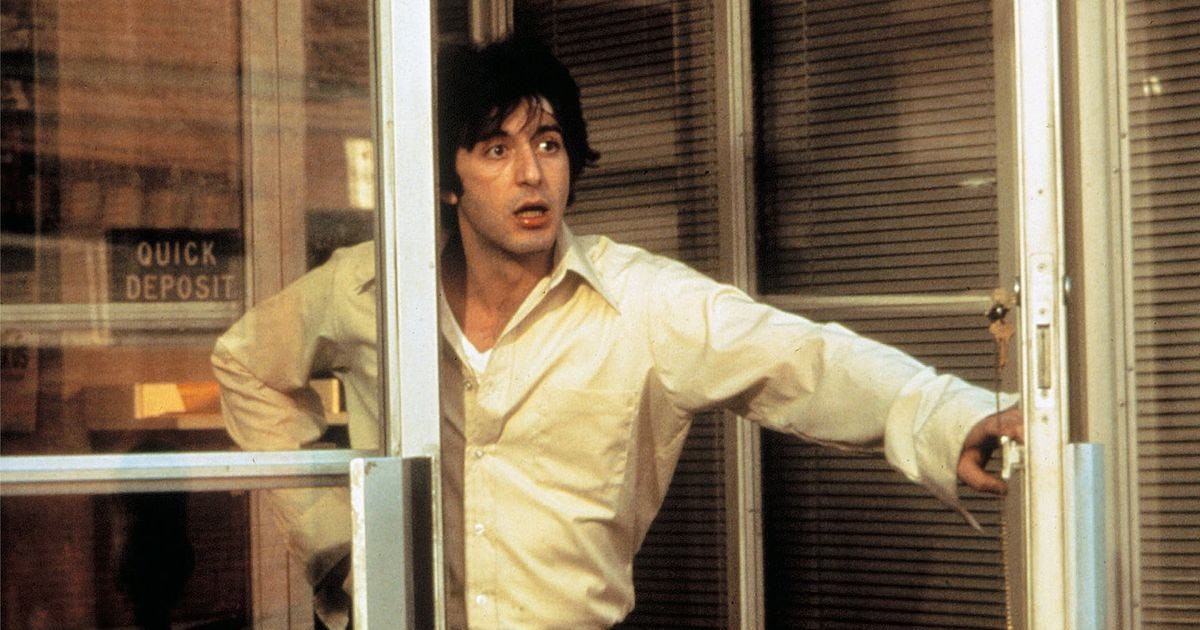
"Sidney Lumet's Dog Day Afternoon, with its biting critique of police militarization, the way media sensationalism dehumanizes us, and the Sisyphean task of keeping your head above water as a working-class American, still feels fresh and salient even a half-century after its release. A crime drama adapted from the article "The Boys in the Bank," Dog Day Afternoon is based on a 1972 hostage situation and robbery of a Chase bank in Brooklyn."
"Lumet's take on the story approaches crime from the bottom up rather than the top down, and Pacino gives a fully embodied performance with so much sadness and history behind his eyes. Sonny is as messy and disenfranchised as any of us. The American dream has failed him, like it has failed so many vulnerable people. And with the LGBT community under attack, the film feels tragically present, as people in power turn their backs on gay and trans people in 1975 and today."
Dog Day Afternoon centers on a 1972 Brooklyn bank robbery turned day-long hostage standoff driven by Sonny Wortzik's desperate attempt to pay for a partner's gender-affirming surgery. The film critiques police militarization and the dehumanizing spectacle of media sensationalism while portraying the exhausting realities of working-class survival. The narrative adopts a bottom-up perspective and anchors itself in a deeply human performance that conveys sadness, history, and disenfranchisement. The story links the failed promise of the American dream to contemporary attacks on LGBT people, suggesting persistent cycles of institutional neglect, theatricalized violence, and cultural appetite for law-and-order spectacle.
Read at Inverse
Unable to calculate read time
Collection
[
|
...
]